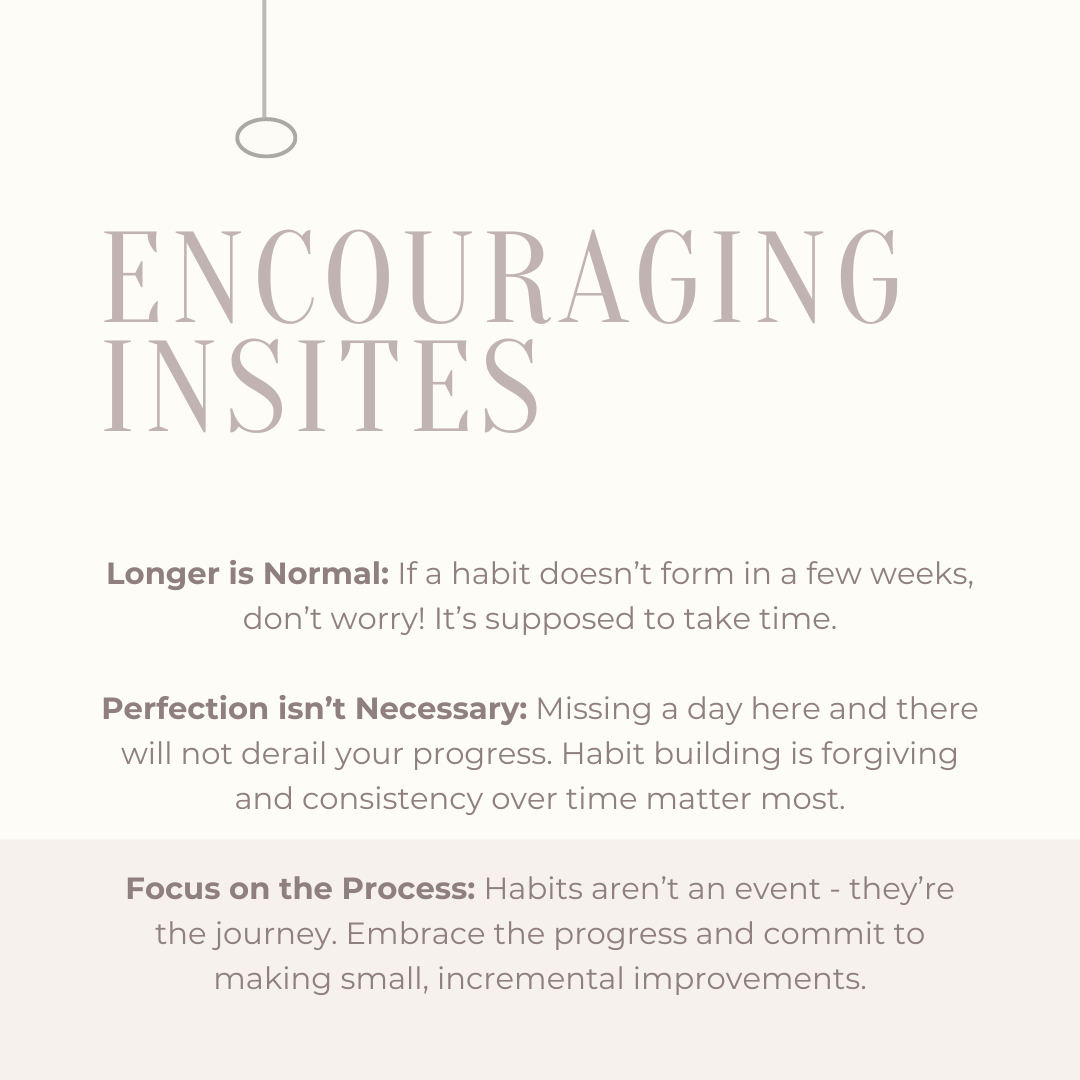We all have that one habit we wish we could form, whether it’s exercising more, eating healthier, or finally starting that daily journal. Habits shape our lives in incredible ways, but creating new ones can feel increidbly daunting. The good news is, with a little understanding and some helpful tips, forming new habits can become a smooth and rewarding process.
How Long Does It Really Take to Form a Habit?
You’ve probably heard that it takes 21 days to form a habit. This idea originated from Dr. Maxwell Maltz’s book "Psycho-Cybernetics" published in 1960. However, recent research suggests that the timeline isn’t quite that simple.
A study conducted by Dr. Phillippa Lally and her team at University College London found that, on average, it takes about 66 days for a new behaviour to become automatic. That’s just over two months! But here’s the catch: the time it takes can vary widely from person to person and habit to habit, ranging anywhere from 18 to 254 days.
The key takeaway? Don’t stress if you’re not seeing immediate results! Patience and persistence are essential.
Tips for Staying on Track
Forming a new habit is like planting a seed. It needs time, attention, and the right environment to grow. Here are a few tips to help you nurture your new habits:
1. Start Small
Begin with a manageable goal. If your aim is to exercise regularly, start with 10 minutes a day rather than committing to an hour-long session. Small, consistent actions are more sustainable and less overwhelming.
2. Be Consistent
Consistency is crucial in habit formation. Try to perform your new habit at the same time every day. This helps integrate the habit into your daily routine, making it easier to stick with in the long run.
3. Use Triggers
Link your new habit to an existing one. For example, if you want to start flossing daily, do it right after brushing your teeth. This way, the established habit acts as a reminder and prompt for the new one.
4. Track Your Progress
Keep a habit tracker or journal to record your progress. Seeing a visual representation of your efforts can be incredibly motivating. Plus, it helps you identify patterns and obstacles that you can address.
5. Celebrate Small Wins
Every step forward is a victory. Celebrate your progress, no matter how small. Rewarding yourself reinforces positive behavior and makes the process more enjoyable.
6. Be Kind to Yourself
There will be days when you miss a step or fall off track. It’s important to be compassionate with yourself and not let slip-ups derail your efforts. Remember, it’s the long-term commitment that counts.
7. Find a Buddy
Share your habit goals with a friend or family member. Having someone to support you and hold you accountable can significantly boost your motivation and perseverance.
8. Visualize Your Success
Take a few moments each day to visualise yourself successfully performing your new habit. This mental rehearsal can increase your confidence and reinforce your commitment.

The Journey Is the Reward
Forming new habits isn’t easy, but the rewards are well worth the effort. By starting small, being consistent, and celebrating your progress, you can cultivate lasting changes that enhance your life. Remember, the journey of habit formation is just as important as the destination. Embrace the process, be patient with yourself, and enjoy the positive changes that unfold!



